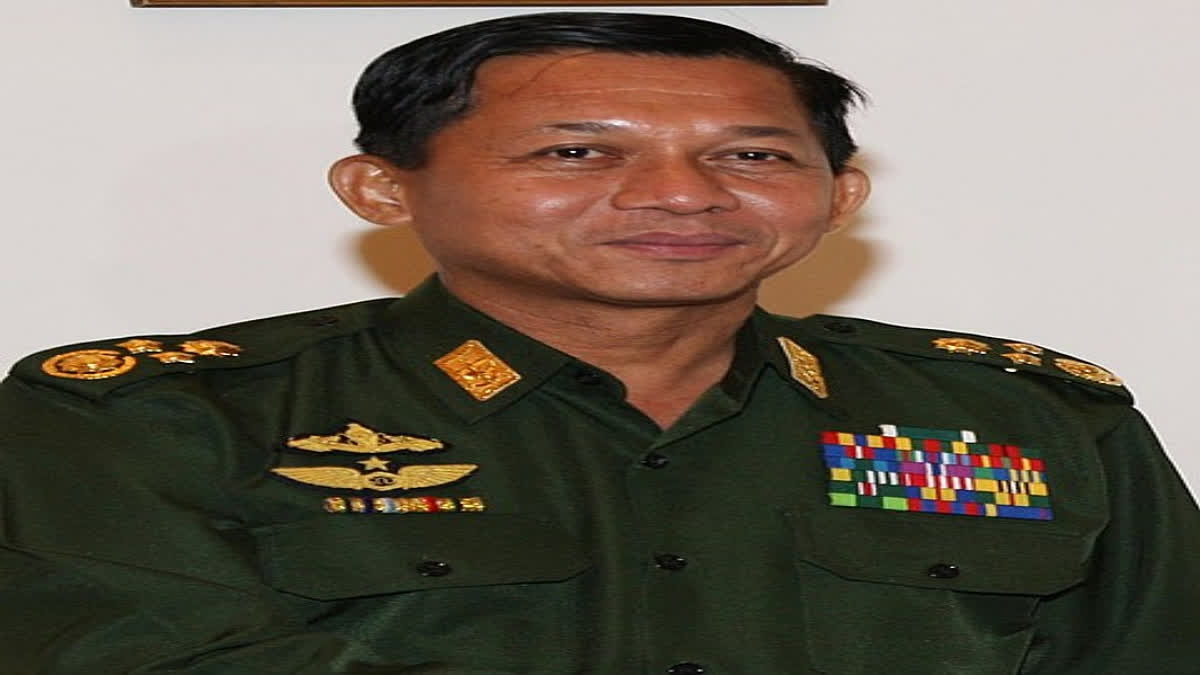New Delhi: Months after a group of ethnic resistance groups dubbed the Three Brotherhood Alliance launched a massive offensive against Myanmar’s military junta, reports suggest that the regime’s leader Senior General Min Aung Hlaing is under pressure from all sides, including from within his own allies, to resign.
Min Aung Hlaing, who has ruled Myanmar as the Chairman of the State Administration Council since seizing power in the February 2021 coup d’état that ousted the democratically elected government led by Nobel laureate Aung San Suu Kyi. Min Aung Hlaing additionally appointed himself Prime Minister in August 2021.
According to a report in the news portal The Irrawaddy, seeing the junta’s repeated failures on several fronts, there have been growing calls from pro-regime figures for Min Aung Hlaing to step down. Myanmar has experienced widespread violence since the military ousted the democratically elected government of Aung San Suu Kyi in February 2021. However, the junta has been suffering from stunning reverses ever since the Brotherhood Alliance launched Operation 1027 in October last year.
The Alliance was formed in June 2019. The group rose to prominence in 2023 in resisting the Myanmar Junta in the wake of the 2021 Myanmar coup. The three armed groups were silent about the coup initially, but released a statement reaffirming the Alliance’s existence in March 2021. During the Myanmar civil war, the group fought mainly in Rakhine State and northern Shan State. On October 27, 2023, the Alliance launched Operation 1027, an offensive against the junta in northern Shan State.
The AA is an ethnic armed organisation based in Rakhine State (Arakan). Founded on April 10, 2009, the AA is the military wing of the United League of Arakan (ULA). The MNDAA is an armed resistance group in the Kokang region. The army has existed since 1989, having been the first one to sign a ceasefire agreement with the then Burmese government.
The ceasefire lasted for about two decades. The TNLA is the armed wing of the Palaung State Liberation Front (PSLF). The TNLA is known for its opposition to the drug trade, conducting operations where they actively destroy poppy fields, heroin refineries and meth labs. The TNLA claims that it arrests opium smugglers regularly and the narcotics seized are publicly burned on special occasions to deter drug trade.
Since the launch of Operation 1027, the Three Brotherhood Alliance captured more than a dozen towns and over 400 army outposts. In light of this, pressure is rising on the regime and its leader. “The Myanmar military is in serious trouble,” The Irrawadddy report stated. “Coup maker Senior General Min Aung Hlaing faces growing calls to resign –this time, not just from his opponents, but also from his allies. Internal dissent, defections and a breakdown in the chain of command. What’s next?”
Regime supporters have expressed anger at Min Aung Hlaing publicly on social media platforms. “They say he is incompetent, selfish and lacks backbone, and accuse him of guiding a military once considered invincible into a state of shame and desperation,” The Irrawaddy reported.
According to observers, though the rumbling within the regime against its leadership is not new, this has certainly grown in recent times. “There have already been a number of defections from the army,” an Indian scholar who closely follows developments in Myanmar told ETV Bharat. “The level of trust and confidence in the leadership has been low.”
